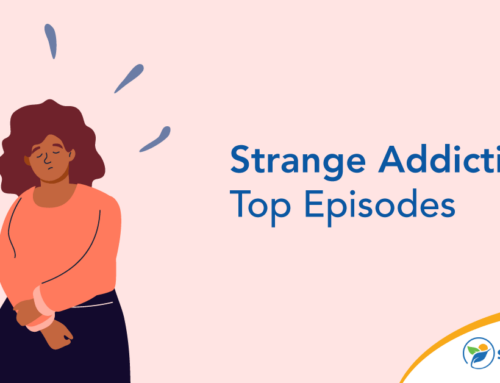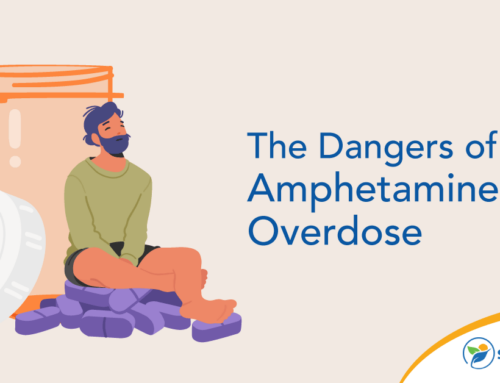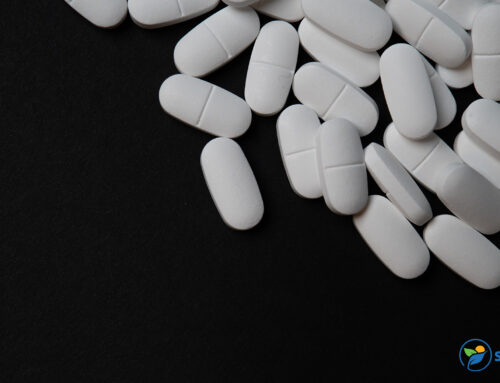Adderall is a stimulant commonly prescribed by doctors to treat attention deficit hyperactivity disorder (ADHD). It’s prescribed so often that many people may not think of it as dangerous or habit-forming. However, a Johns Hopkins study found that Adderall abuse is increasing among young adults aged 18 to 25. During the study’s focus period, Adderall misuse among this age group rose nearly 67%, while associated emergency room visits increased by 156%. With these numbers, it’s hard not to wonder: Is Adderall addictive, and why do so many people abuse it?
Understanding Adderall
Adderall works by increasing the amounts of certain natural substances in the brain, such as dopamine and norepinephrine. Dopamine is the body’s feel-good chemical that produces a rewarding effect. Norepinephrine affects the brain’s response to events, particularly how quickly it responds to external stimuli and how it pays attention. Although dopamine is a naturally occurring chemical, stimulants like Adderall produce unnaturally high levels of it, which can encourage continued use.
The drug is known for increasing an individual’s ability to pay attention, stay focused on activities and organize tasks, which may explain why college students are typically drawn to it. It can also boost feelings of self-confidence and suppress appetite. People abuse Adderall for various reasons, including:
- Studying
- Athletic performance
- Staying awake
- Weight loss
Although the drug is commonly associated with college students, many older people, including work professionals and athletes, abuse Adderall. Professionals may take Adderall to keep up with increasing demands at work, while athletes may use it to enhance their performance during practice or competitions and prevent fatigue. No matter the reason, taking Adderall without a prescription or outside a doctor’s instructions is considered abuse and increases a person’s chance of experiencing negative side effects, such as:
- Insomnia or restlessness
- Dry mouth
- Diarrhea
- Constipation
- Blurred vision
- Sweating
- Anxiety
- Shortness of breath
- Irritability
- Change in libido
- Heart palpitations
Is Adderall Addictive for ADHD?
Whether or not you’ve been diagnosed with ADHD, Adderall can be highly addictive if taken improperly. Those who use the drug recreationally on a daily basis have a high risk of developing an addiction because of the way it impacts the dopamine pathway. Adderall overstimulates dopamine neurotransmitters, which alters the way they work. After abusing Adderall long-term, an individual may struggle to feel pleasure without the drug.
It’s also possible for the body to build up a tolerance to Adderall over time, meaning higher doses are needed to feel the same effects. If someone develops a physical or psychological Adderall dependence, they may find it difficult to cope if they suddenly stop taking the drug and will go to great lengths to obtain more. Acquiring and using Adderall becomes their top priority because stopping may cause unpleasant withdrawal symptoms.
There are a few common signs to look for if you suspect someone may have an Adderall addiction:
- Taking larger doses to feel the drug’s effect
- Struggling to feel alert without the drug
- Taking the drug despite knowing it’s harmful
- Spending excessive time and money getting and using the drug
- Wanting to cut down but being unable to do so
- Not being able to feel alert without the drug
- Suffering withdrawal symptoms when not taking Adderall
- Neglecting other activities to use Adderall
Can you get addicted to ADHD medication? Yes, it’s possible to become addicted to these medications, including Adderall, although people don’t intend to when they begin taking them. It usually starts as a way to increase productivity when feeling stressed or overwhelmed. However, if individuals aren’t aware how much of the drug they’re consuming, an addiction can form.
Dangers of Abusing Adderall
Frequent and long-term Adderall abuse can lead to several health problems or other dangerous side effects. Potential long-term effects of abusing Adderall include:
- Weight loss and malnutrition
- Seizures
- Insomnia
- Difficulty breathing
- Aggression
- Mood swings
- Cardiovascular disease
- Depression
- Panic attacks
- Toxic psychosis
- Headaches
People who abuse Adderall may also take other drugs, such as cocaine, Xanax, marijuana or alcohol, to enhance the effects. Some people also take other drugs to counteract the effects of Adderall if it’s preventing them from sleeping. No matter the reason, combining Adderall with other drugs increases the risk of health-related complications, such as cardiac arrest and overdose.
The risk of alcohol poisoning is also higher among those who take Adderall recreationally. Research from the National Library of Medicine shows that nearly 50% of recreational Adderall users mix the drug with alcohol. The alertness produced by Adderall can mask the effects of intoxication, causing someone to not realize how much alcohol they’ve consumed, which can lead to alcohol poisoning.
Is Adderall addictive in the long run? Yes, the longer someone abuses Adderall, the harder it can be to stop. The withdrawal symptoms that can occur when an addicted person tries to stop taking the drug can make it even harder to quit. Common withdrawal symptoms include:
- Adderall cravings
- Changes in sleep patterns
- Depression
- Anxiety
- Fatigue
- Lack of motivation
- Increased appetite
- Lucid dreams
How to Treat an Adderall Addiction
An Adderall addiction can be difficult to overcome, but there are several treatment options available to help individuals achieve a successful recovery.
Detox
Detox involves abstaining from drug use to rid the body of the substance. This process typically takes place as part of a detox program under the supervision of medical professionals. Withdrawal symptoms usually kick in during detox, and medical staff can provide medications to alleviate them.
Medication
While there are no specific medications used to treat an Adderall addiction, medical professionals may prescribe something to alleviate withdrawal symptoms. For example, sedatives may be used if an individual experiences anxiety or panic attacks during withdrawal. Antidepressants can also be prescribed to treat depression.
Addiction Rehab
An addiction rehab center helps individuals recover from substance abuse by addressing any underlying mental health issues that may be causing drug use. There are many types of rehab programs, including inpatient and outpatient programs, depending on your lifestyle and the severity of your addiction.
How to Get Help
If you or a loved one has been struggling with an Adderall addiction, help is available. Sunlight Recovery is an addiction treatment facility offering a wide range of services to address substance abuse and mental health issues. Contact us today to learn more about which services are best for you.







